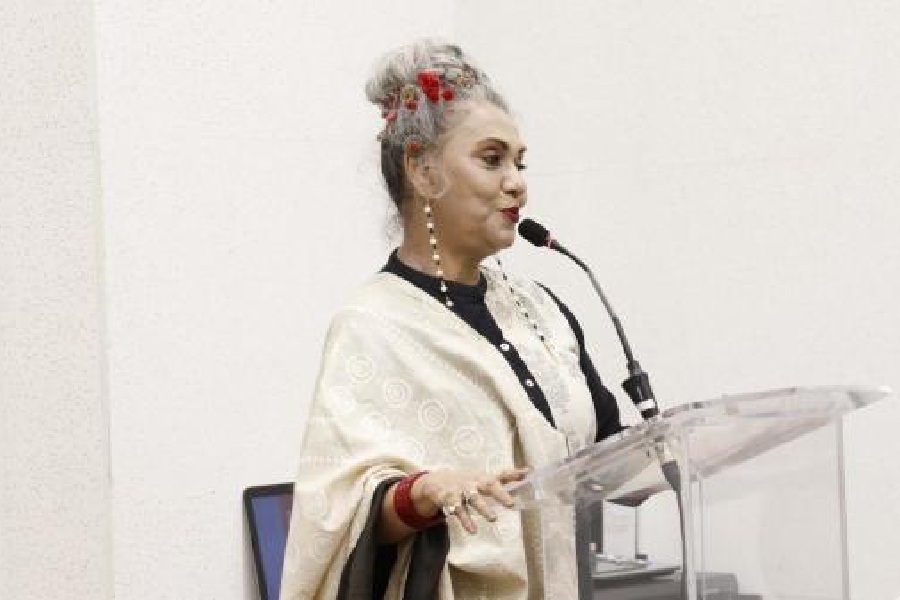On her way to a performance, dancer-choreographer-dance educationist and therapist Alokananda Roy had stopped at a wayside dhaba. As she sat on the charpoy savouring her roti-tadka, she found a young kid running around attending to customers.
Roy asked him to sit with her. He said: “Time nei (I have no time).” Roy asked the dhabawala to release the boy from his duty for some time so she could talk to him.
“I asked the boy what he did at the dhaba. He said he worked there. And after work did he go back home? He said that after working the whole day, he was forced to sleep with the truck drivers at night,” said Roy, while participating in an interactive talk show titled ‘‘In Conversation with Alokananda’’ at the Alipore Jail Museum recently.
“I am delighted to see that Alipore jail that I used to visit earlier has undergone a makeover. It is so beautiful now,” she said while talking to the audience about her professional journey.
The social activist who works with prisoners, training them in dance, is now focussing her work on juvenile criminals, most of whom have had the kind of experience as the kid at the dhaba.
Over the last two decades, Roy has been teaching dance and music to both male and female inmates at correctional homes. While doing so, she also took them out for shows in Delhi, Mumbai, Pune, Bangalore, Bhubaneswar and in Kolkata.
One of the much-acclaimed performances was Balmiki Pratibha, which is a Tagore opera on Ratnakara, the thug who turned into Balmiki and wrote the Ramayana.
“We have done 100 shows of Balmiki Pratibha. Let me tell you that the first performers in the first production of Balmiki Pratibha are all out of jail now and are doing well,” she said.
She is often asked how she did it and what theory she used to reform such criminals. She works with lifers.
“When I started this I had no theory, I have no theory now either. It is just my instinct. I felt any one of them could have been my child. No child was born a criminal,” she said.
The most difficult time for convicts is when they get released. They have to find a job. Some go to open prisons where the gates are unlocked at 8am and they have to find work. They come back before 8pm when the gates are locked again. They can stay there with their families, according to law, but there is no infrastructure for that.
“Who will give them jobs? Durgapur Steel Plant is willing to take them from the Durgapur open prison,” said Roy.
